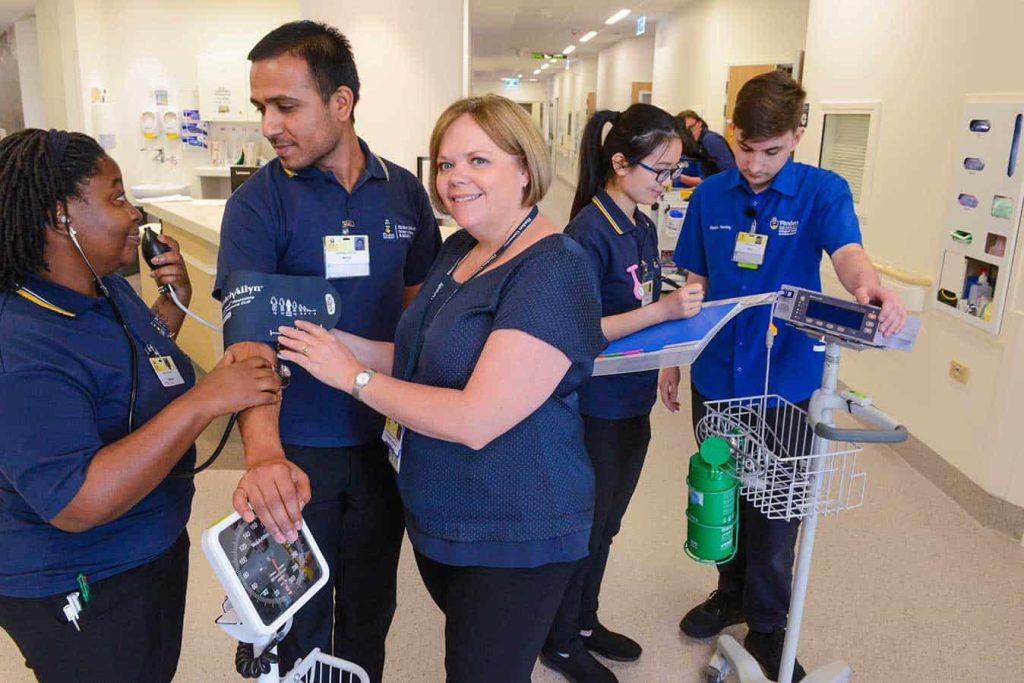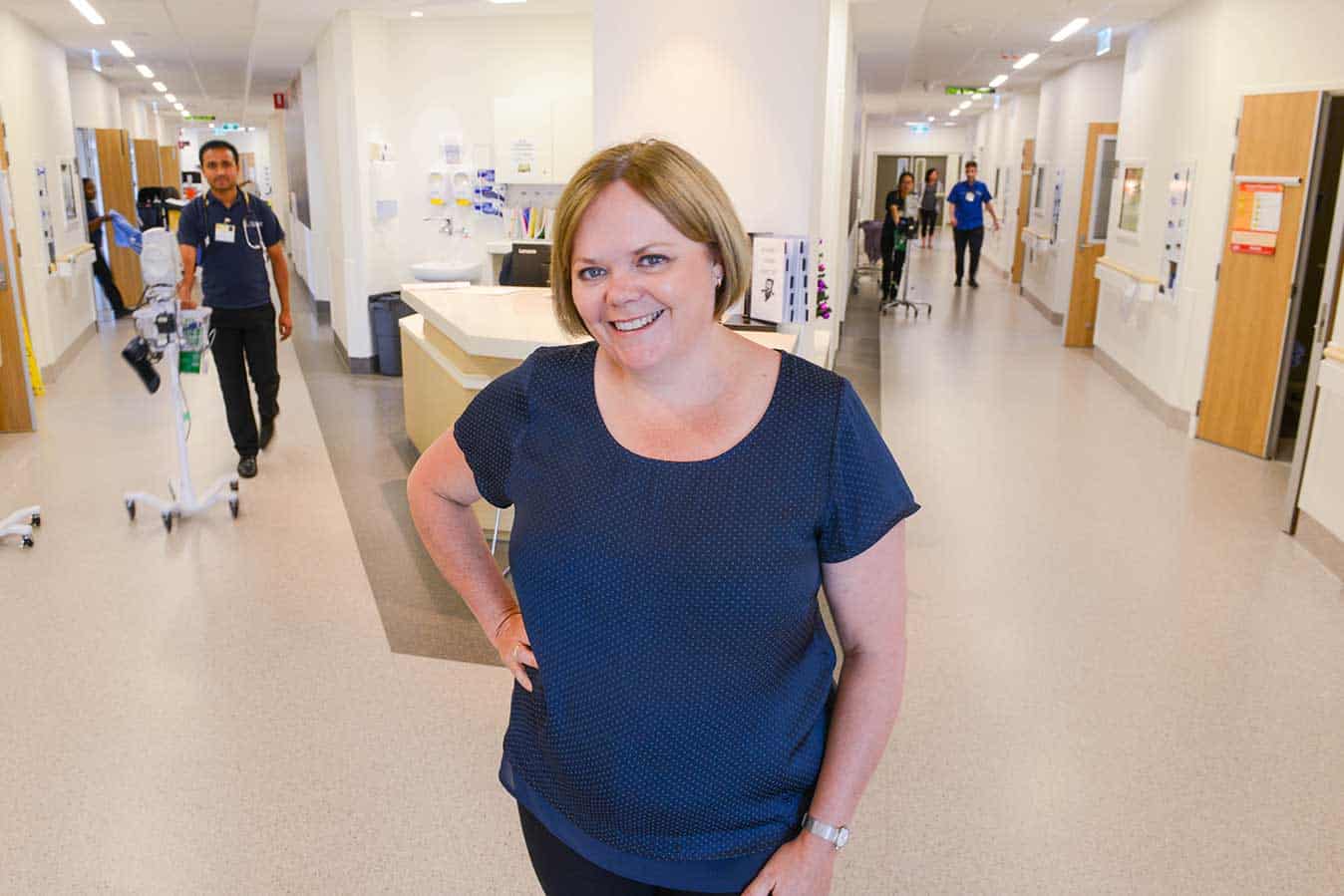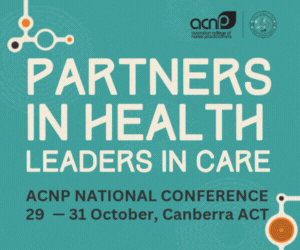A Placement Educator at Flinders University’s College of Nursing & Health Sciences in Adelaide, Registered Nurse Deb Hastings helps student nurses navigate their way through real-life professional experience.
Clinical placements provide students the opportunity to transfer theory into practice and hone their skills for future practice in nursing or midwifery.
Placement Educators like Deb assist students along the journey from classroom to ward, preparing them for clinical placements, monitoring their progress, evaluating their performance, acting as a professional role model and liaising with health staff and educators.
“When they [students] start out they’re very green and it’s wonderful to see them grow and develop into mature people ready to take on the world and provide care,” Deb says.
“They are responsible for the health and wellbeing of their patients and a lot of them really embrace that opportunity. The way I teach them is to encourage them to think about what their role is.”
Deb has been an RN for over two decades and continues to work clinically on a casual basis at a private metropolitan hospital to maintain her skills and hands-on connection to the profession.

Nursing students at Flinders begin undertaking clinical placements in the first year of their degree with a 10-day block of training, usually a community placement.
In second year, students embark on two four-week placements in either an acute care or aged care setting where they start learning how to assess and manage patients.
By final year, student nurses work with more independence within their scope and take ownership of running a ward or setting with the support of a preceptor.
“At the start of the placement I ask the student what they hope to gain from the placement? How can we help you? What is your main goal for this placement? Because you’ve got to keep in mind that everyone learns at different levels,” Deb explains.
“I always keep in mind the student that is the high achiever and needs to be stimulated a little bit more. What sort of opportunities do I have available for that student? Should we meet the expectations sooner rather than later? It might be arranging for that student to follow a patient from admission to theatre back to the ward and discharge.”
Starting out on the clinical learning experience can be a bit daunting so Deb has shared her top tips on how to survive and thrive on placement.
Be organised
A lot of preparation is required before students start a clinical placement.
Primarily, students need to make sure all their conditional evidence documentation, including police check, working with children check, basic life support certificate and immunisation status, is provided to their education provider beforehand.
They should jot down and save the email and phone contact details of their clinical placement facilitator, the direct number of the facility they’ll be training at, and who best to contact should they become unwell or be unable to make it to work on time.
Students should also work out how they are going to get to the clinical placement and what transport they may require to remain punctual.
“It sets a good impression because if you’re starting at 7am and you get there at 7.30am you’ve missed handover and you’re looking unreliable,” says Deb.
Revision
Nursing students at Flinders University are encouraged to formulate their objectives prior to beginning a clinical placement by completing a Professional Learning Plan (PLP).
The plan identifies their objectives and in what timeframe they will realistically be fulfilled.
“A lot of students say ‘Well I don’t know what the ward’s about so I can’t give you an objective’ and I say ‘Well you’re going to a urology ward what do you think that involves?’ just to get them thinking about their environment,” Deb says.
“I send my students an introductory email and discuss day one expectations and what my expectations are of them during the placement.”
Professional appearance
Deb says student nurses must take into account professionalism and personal grooming when starting a clinical placement.
This includes making sure uniforms are laundered daily and being mindful of not wearing too much perfume or cologne because patients could find it overpowering when being cared for.
Practice within your scope
Deb says it is important student nurses practice within their scope during different stages of their degree when undertaking a clinical placement, acknowledging that they are still students and not yet registered nurses.
For example, first year students cannot administer medication, but by third year they should be growing in independence as a student nurse and using their initiative more to start running the ward in a sense while working under the supervision of a preceptor.
Treat the placement as an interview
A clinical placement could provide a stepping stone to future employment so Deb suggests grasping the opportunity to shine and treating the experience as a job interview.
Students are representing their workplace and the professions and should act professionally and be well mannered at all times.
“A lot of potential employers are watching you the whole time thinking ‘Do we want this person to come and work with us?”
Beware of social media
Deb says the rise of social media has created new considerations for student nurses while on clinical placement.
Some venues require students to sign a statutory declaration that they will not discuss the workplace on social media so that confidentiality is maintained across a variety of areas.
For example, Deb says student nurses often get excited about being in their uniform for the first time and take photos of themselves and post them on social media with student IDs showing, potentially leaving them looking unprofessional or flouting hospital policy.
Have fun
While clinical experience is an essential part of becoming a Registered Nurse must be undertaken with the utmost professionalism, Deb encourages student nurses to remember to have fun along the way and embrace the learning opportunity.
“I like to say to my students have fun. Enjoy it. Embrace this learning opportunity. Every opportunity you’re given you’re learning. When you finish your degree, you don’t stop learning.”








